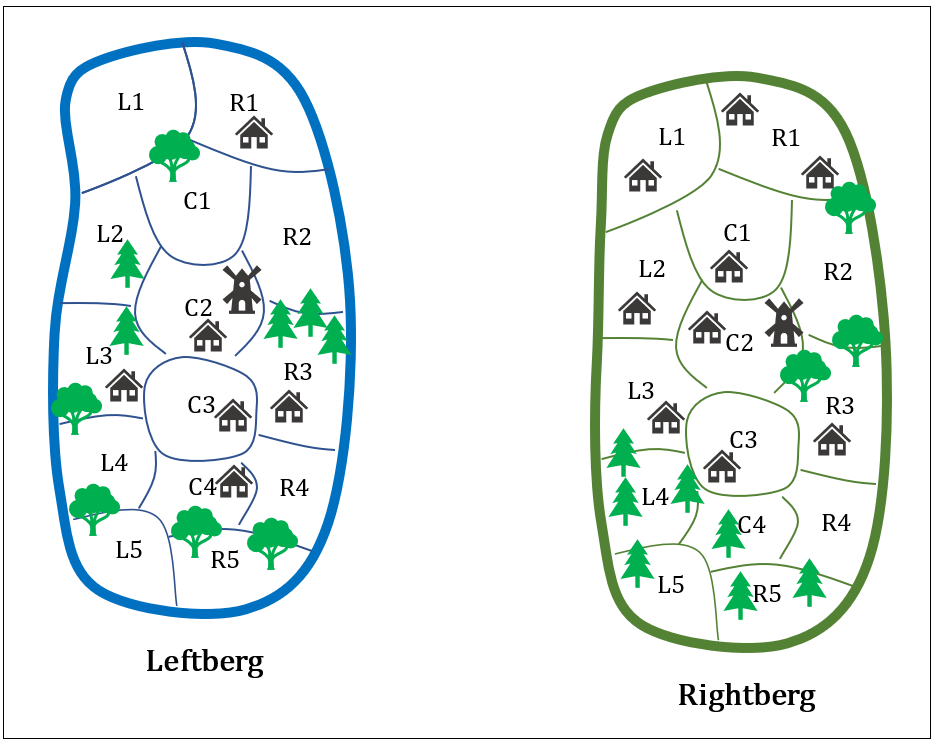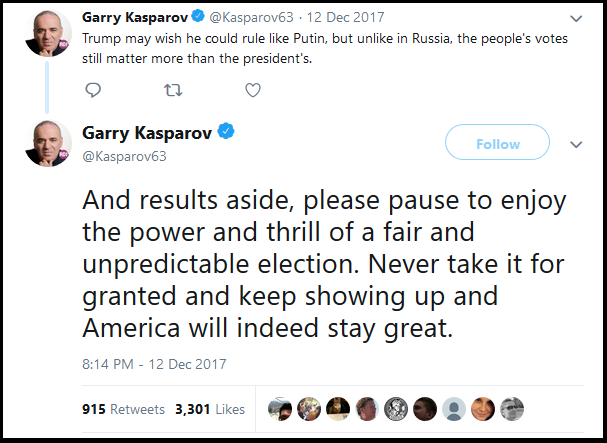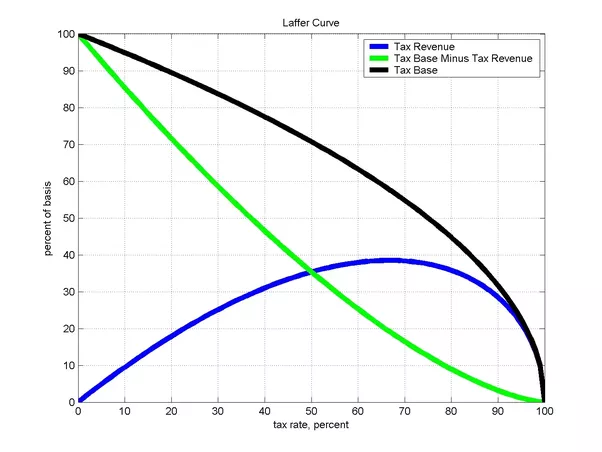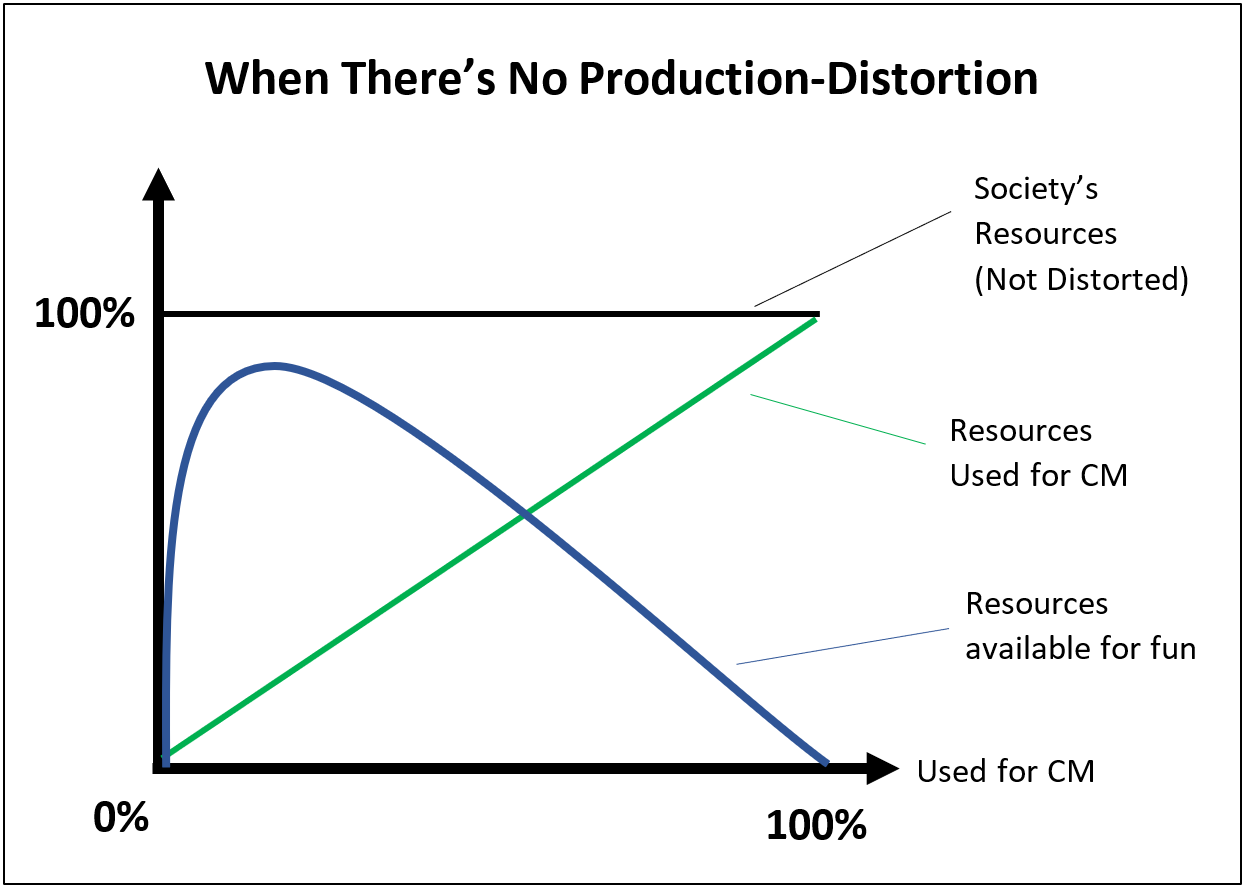Abstract
Anarchists critique the state, by asserting that public sector transactions are non-consensual. The state will continue to do whatever it is doing, regardless of any individual’s protests (or cheers). Thus, an anarchist might say: “I did not sign a contract, agreeing to pay X (in taxes) for Y (government services) – this is coercion!”
But this line of reasoning doesn’t take the idea of “consent” seriously enough. Instead, I will build up a better understanding of consent, via five sections:
- First, consent can be given, without any contracts or signatures. In fact, it can be given without any interaction between parties at all.
- Second, consent can be established in many ways, none of which are perfect, and non of which trump any of the others – it is always guesswork.
- Third, teamwork is valuable and ubiquitous. We know that people prefer to work/play in teams, at least some of the time.
- Fourth, it is especially difficult to measure consent among team-members – team-members have three special incentives to obfuscate the consent-measurement process. One of these is “cost of consent-measurment” – a cost which the team must somehow pay. We can see how a team would prefer to use inaccurate-but-cheap consent-measures such as voting.
- Finally, I argue that the quest to improve (or reduce) the public sector, is really a quest for better technologies that manage interaction. The oft-emphasized “moral dimension” of governance is, in my view, mostly a distraction.
Prologue
We hold these truths to be self-evident,
that all men are created equal,
that they are endowed by their Creator
with certain unalienable Rights,
that among these are Life, Liberty
and the pursuit of Happiness.
That to secure these rights,
Governments are instituted among Men,
deriving their just powers
from the consent of the governed
--US Declaration of Independence
Part 1. Consent is Information
A. “Giving” Consent
One theory of consent, claims that consent has a “form”. For example, this form might be as follows: “a signature, in blue or black ink, on a document prepared by lawyers and then printed out on 8.5 by 11-inch paper”.
But consent cannot be like this. Already, there are two fundamental problems:
- The written signature could have been forged, in which case it would not represent consent at all.
- Courts (in the US) treat verbal contracts to be legally binding, even though these do not exist in physical “form” anywhere.
The first inconsistency shows us that the physical ink is not necessarily imbued with any consent – ie: there’s nothing special about ink. The second shows us that the same consent could have been imbued in many completely different ways.
This is because consent is information – it is the result of an information-processing task performed by human brains. And information-giving is quite unlike property-giving. I could “give” you my email address, but it would be in an entirely difference sense than if I were to “give” you my sandwich.
One of the important implications of this fact, is that there is not necessarily any connection between the actions you take and your giving of consent. You can “give” consent, even by doing absolutely nothing, as I will now demonstrate.
B. The Falling Crane
Consider this scenario: you are walking down a city street; you are violently knocked to the ground; you slowly pick your bruised body up; there is dust in the air; people are shouting – a few individuals nearby have [apparently] been knocked unconscious; then, you hear a loud creaking sound and observe that a crane nearby is falling towards you (like this). In a few panicked remaining seconds, every able-bodied person, including you, grabs an unconscious person nearby and drags them laterally out of the crane’s path.
These were selfless acts of bravery and compassion. But they could technically be construed as “battery” – the crime of placing your hands on another person without their permission. Of course, any judicious observer would confidently predict that consent was in fact present. If we could freeze time, and communicate with the unconscious bodies via magical telepathy, we know that they would likely be screaming “Please help!! Yes, please move my body out of the way!! Thank you!”.
So we have our desired example: of consent being given, despite no interaction between the two parties. It was simply conjectured into existence.
( This concept may help resolve other supposed consent-puzzles. For example romance [see here and here], and parenting [ie, “Am I allowed to ‘force’ my young/naive child, to attend school / practice the piano / learn manners ?”, etc.] )
Part 2. Consent is Always Known Imperfectly
A. Proving Guilt
First, let me define three terms: Truth, Knowledge, and Proof.
“Truth” is whether or not something is actually a certain way, “out there” in the external objective reality. “Knowledge”, is if your brain 1 ever creates a representation of the “thing” that is accurate (the representation’s “way”, is the way that the real thing’s “way” is). A “Proof” is a new thing (not in your brain) that you can use to create knowledge [about the first thing] in others.
For example: [1] you shoplift on a certain day; [2] someone sees you; and [3] your crime is recorded on surveillance camera. The first is a Truth, the second represents Knowledge (the witness’ knowledge of truth [the truth of your guilt]), and the third represents Proof.
Regarding consent, AnCapists often ask critical questions, such as: “Did Alice aggress against Bob, or were their interactions voluntary?”. These questions are often philosophical, asked by omniscient narrators for the purpose of examining a specific policy. But when two real people are investigating an actual dispute in the real world, they will not be omniscient. They will not necessarily know anything about what Bob or Alice actually did – they will only know about their knowledge of what Bob/Alice did.
B. Consent Fallibilism
Is there a perfect, infallible way to measure consent?
I think the answer must be “no”. First, all knowledge is fallible, and consent is a form of knowledge. And that ought to be enough.
Imagine you observe an apparent signature on a document. Here are some things that you must understand, in order to determine that the signature represents consent of something:
- forgery
- duress
- intoxication / impairment
- demonstration / thespianism
- literacy / comprehension
- the difficulty of articulating one’s mind (in the terms of the contract) in both a compact and unambiguous way.
- all of the rules of English spelling and grammar, including all definitions, connotations, and historical contexts.
- rapidly changing preferences (ie, changing you mind, exactly at the moment a contract is signed) or time inconsistent preferences (ie, hoping to go to the gym tomorrow [but not today] on each individual day of your life).
- human psychology, specifically: theory-of-mind, agency, attention, etc.
- the relationship between “signatures” and “consent” in Western culture.
- the relationship between specific names and specific people.
- the identifying characteristics of “a signature” (eg, “What is a signature anyway?”).
- the laws of physics that govern the behavior of ink, paper, light, safety deposit boxes, etc.
- the existence of “deceptive” products, such as ‘invisible ink’ or Photoshop; and of how these work, and the contexts in which they would be too difficult to use.
When we observe signatures on documents (or handshakes after lengthy verbal negotiations), we may conclude that consent has been given. But only because we pair that observation with innumerable pre-existing assumptions, each of which is potentially mistaken.
C. Cost of Consent-Proving
Knowledge-creation is expensive. It costs effort to make, just as it costs effort to make a chair or an ice cream sandwich. Even if every citizen wanted to spend their scarce free time, to investigate every transaction in the economy for fraud (itself a dubious prospect), the simple fact is that they just do not have enough time to do so. (More in Part 4).
Courts are society’s specialists in this area. They are fallible, but a reliable “proof” exists at least of the outcome of their decision. While people can disagree over the facts of each case, they can’t really disagree about “what the court ultimately decided to do”2. Thus the dispute ends.
D. Rejecting CM Nihilism
In saying these things, I am not endorsing defeatism or pessimism; nor I am trying to give cover to tyrants. In fact, as we will see, my rejection of “naive consent-measurement” is an essential step toward defeating tyranny.
It is possible to measure consent; and it is possible to do so efficiently. Those who shirk their consent-measuring duties are committing an injustice.
Part 3. Building Teamwork
I will define a group as: “more than one individual”. And I will define a team as: a group which cooperates (engages in purposeful coordinated activity).
A. Teamwork
Teamwork is valuable.
For example:
- Bands that rehearse, perform better than bands that don’t. A coordinated army will defeat an undisciplined militia. Wall-building has O(n) costs but covers O(n^2) surface area. Roads cost O(n) to build but provide O(n^2) routes (an example of Metcalfe’s Law).
- Some things cost O(1) to make, but provide benefit to n people. Knowledge, for example, spreads freely and immediately to everyone (as well as art, literature, etc). Public roads – until very recently, road-privatization required innumerable tolls and barriers (and stopping at these would tend to contradict the purpose of building the roads in the first place).
- Conversely, certain bad things spread at O(n^2), but can be halted at cost O(n). Such as: fire, infectious disease, lawlessness/rioting, poor mental health [leading to melancholy, depression], poor social health [leading to formation of gangs, cults] (and probably also: mass shootings, hysteria, etc).
- Sometimes, one person can ruin something for everyone. For example: suppressing unwanted noise (at a library, orchestra concert, or during ‘quiet hours’), electromagnetic inference (as in radio/tv/cellular broadcasting), spread of secrets (covert military operations, spies). Medical surgery; serene experiences (a nice dinner party, geopolitical negotiations); existential maintenance of the planet (Global Warming, Grey Goo), etc.


Above: A house with xmas decorations. In the lower photo, one window is unlit, which substantially reduces the aesthetic value.


Above: Ants form a tower to escape the water. From the movie Antz (1998).
B. Teamwork-Constructors
Anarcho-Capitalists do not dispute the effectiveness of teamwork. Instead, they object to certain processes by which teamwork comes about.
So, how does teamwork ‘come about’, anyway? And which ‘how-it-come-abouts’ do the anarchists object to?
i. Information Diffusion
Well, when many different people comply with a defined plan, it must be because two conditions were met: [1] they all knew what to do, and [2] each person felt motivated to do their part. In other words, a specific type of knowledge diffused through the group – a “group computation”. Everyone obtained enough of the plan to understand both [1] their role in it and [2] that it was in their best interest to follow the plan3.
There are many ways of accomplishing this knowledge-diffusion task, just as there are many ways of constructing a bridge between two points of land. For example: one way is “deliberation-and-consent” – for everyone to share all of the information they have, and discuss until everyone agrees. A second way is “threaten-and-submission”; a third is “majority-vote-and-resignation”.
The constructors can operate on different levels – for example, people can agree to participate in a democracy, but if they feel the democratic process is not respected they may decide to support a military coup. People may sign written contracts, and then later make ad hoc verbal clarifications without ever bothering to write these down.
The foundation of social compliance is, of course, psychological / biological. Let us break this down even further.
ii. Norms and Meta-Norms
“Behavioral norms” are “ideas about how to behave, when interacting with other people”. Such as:
- “when you meet someone new, shake their hand”
- “do not use vulgar words if young children are nearby”
- “do not use the n-word ever, unless you have dark skin”
- “respect ‘personal space’ – move nearest the people you know well”
- “over-fortunate people should share generously”
Most of our informal social norms evolved, via natural selection. They’re memes in the true, Dawkins sense of the word. They are contagious behaviors that survive by copying themselves into host brains as quickly and reliably as possible. They are enforced via shame, pride, by altering social rank and who is allowed to reproduce or obtain property, etc.4
Resources:
- Basic – Recent Post Classifying Some Modern Norms
- Advanced – Robin Hanson on Norms (and again)
- Experiments – Humans and Monkeys (?); Memes
These rules quite literally create and enforce themselves – via “meta-norms” (norms about norms) that encourage people to gossip about norm-violators (and their associates and parents), and to punish violators by withholding cooperation and/or friendship. These meta-norms are norms which specialize in removing unwanted people from the team (thus protecting the team’s cooperative integrity).
Taken together, the ensemble of norms (especially including the meta-norms) are “teamwork constructors” – metaphorical machines that “take in” multiple independent individuals and “spit out” [provisionally] some teamwork.
C. Teamwork-Specialists
i. Laws
A law is a formally engineered rule. Unlike norms, laws are written with intent – they are consciously desired modifications to society’s culture.
Without psychological force backing them up, laws would merely be imperceptible shapes on invisible paper. Laws do have psychological force behind them, however. Laws receive their power from special norms, such as: “we should have respect for the law” and “you should avoid associating with criminals” and even “it is better to talk things out, rather than use violence”.
In everyday life, norms often trump laws, as when the law against speeding is trumped by a cultural norm allowing drivers to go 5-10 mph over the limit. The converse is also true – laws can eventually trump norms. Especially: [a] after the law is enforced for a while and becomes the status quo (after which most people won’t know how to get rid of it), or [b] if the law accomplishes some noble purpose in a way that is easy to understand.
See also:
Exactly as with norms, those who violate laws (and who refuse to bring themselves back into compliance) are eventually “removed from the team” (ie, removed from citizenship). This means incarceration, or execution.
ii. Contracts
Western law will (usually) enforce contracts. Contracts are situations where people are allowed to simultaneously: [1] agree to a very specific plan, and [2] agree to be punished by the law if they do not accomplish their part. They’re pure teamwork!
Contract-enforcement is a great feature of a legal system, as it allows for exquisite customization of teamwork-agreements. And these agreements affect only those who “opt in” to the agreement.
However, why should contracts accomplish anything at all? The answer: because our legal system has [1] defined what a valid contract is and when one has been created, and [2] will itself enforce contracts. So, there is a ‘meta-contract’ (saying “the court system will enforce valid contracts”); just as there were ‘meta-norms’ (gossip that punished norm-evaders).
If there were no ‘meta-contract’, (or if “opting out” of it were too easy), then anyone could retroactively escape all previously signed contracts, de facto making them all unenforceable (and therefore pointless). So, if contracting is to have any meaning at all, the meta-contract must be firmly in place. And it must change very slowly, so as to minimally disturb all of the consensual arrangements that rest on top of it.
iii. Government
The “meta contract” is better known as The Law – “the set of currently applicable laws in a country”. The Law is changed by Governments – people who specialize in lawmaking, and law-enforcing. For example, the US Supreme Court changed gay marriage laws in 2015, and Congress changed credit-default-swap laws in 2000.
The government itself can be changed (ie “Revolutions”) according to a deeper, even more “meta” ruleset - a “meta-meta-contract” that describes exactly how much governing-error a critical mass of the citizenry will tolerate. If you succeed at a deeper layer, it trumps any of the “rules” of the upper layers5. (The deepest ruleset of all, would simply be the laws of physics.)
D. Definition Review
- Group – More than one individual.
- Team – A group that coordinates, to achieve its member’s goals.
- Norms – Ideas about how to behave, when interacting with other people. Informal.
- Laws – Formal norms.
- Government – The teammates who specialize in [creating, enforcing, and interpreting] laws, and in [enforcing and defining] contracts.
- Rights – Objecvtive Norms, goals of law-makers (see appendix ).
I have now given my definition of “government”. And, in the previous section, I have given my definition of “consent”. We can now discuss what it would mean for a government to operate “with the consent of the governed”.
Part 4. The Hard Problems of Consent-Measurement
Anarchists feel that each individual should have to “give” consent, to all of the laws that they are later expected to obey. In other words, if Jeff-the-Anarchist hasn’t signed off on a law personally, then he should not be bound by it.
This is 100% exactly correct.
The problem is: how do we know which laws Jeff-the-Anarchist has signed off on (and which he hasn’t)?
Unfortunately, it is much harder than it first seems. It is certainly not as simple as printing out each law, and passing them around for each citizen to sign. Consent-Measurement is different from the measurement of temperature, or length, because Consent-Measurement is disrupted, at a fundamental level, by (at least) three “Obfuscators”:
- Free-Riding – The incentive to misrepresent consent as non-consent, out of greed for free stuff.
- Duress – The incentive to misrepresent non-consent as consent, for social reasons (real or imagined).
- Cost-of-Measurement – Consent-measurement is not free – it consumes resources. If consent is under-measured, coercion thrives; but if it is over-measured, then the measuring process itself has become coercive.
The first two are context-specific incentive problems. The third is a fundamental paradox.
Below I discuss each in detail.
A. Free-Riding
Long has my father, the Steward of Gondor, kept the forces of Mordor at bay.
By the blood of our people are your lands kept safe!
-Boromir at the Council of Elrond, The Fellowship of the Ring (2001)
i. Two Hills
Imagine two hills, each with fourteen ~equal-sized plots of land:

The townsfolk are being harassed by wolves and are in dire need of protection. Walls are the proposed solution.
It is noticed that the most efficient wall-construction is to build two long ovals, one per hill, each around all fourteen lots simultaneously. (Walls have the “more efficient with teamwork” property, as we discussed.)
ii. Voluntarism vs Monarchism
LeftBerg, the left hill, endorses voluntarism – they enforce commercial contracts by refusing to trade with any oathbreakers.
In contrast, RightBerg declares for monarchy – they grants their King sole authority, over the building of walls and the defense of the hill. When the WallBuilding Corporation approaches the King, the King taxes the citizens equally – each landowner6 pays (1/14) the cost of the wall, plus some extra for the King’s salary.
But what happens when the WallBuilding Corporation approaches LeftBerg?
The inner landowners (C1-C4) may be thinking strategically. They may guess that the outer owners (L1-L5 and R1-R5) greatly desire the wall, and can afford it. If this is indeed the case, then there is no longer any relationship between their “buy” decision and their receipt of the product. – If they consent to buy the wall, they will each pay (1/14) and receive a wall. But if they do not consent to buy the wall, they will pay nothing and get the wall anyway.
So, it is exactly as if WallBuilding Corp approached the C1-C4 landowners and asked them if they would like to freely donate an amount of money (one-fourteenth the wall’s cost) for absolutely no reason.
Perhaps guilt, or a sense of honor, will motivate the charitable donations of C1-C4. But this unreliable strategy is spoiled by numerous perverse incentives: it rewards the most shameless, or silver-tongued landowners; or the most illiquid or truly impoverished landowners (who are therefore truly unable to pay – shielding their honor from measurement).
So ultimately we can expect rational landowners to decline to pay for the wall, regardless of how much they truly desire it. Normally in economics, a decline-to-pay means that the good is unwanted. But here that is not so – C1-C4 might very clearly want to pay for something, but lie about this in the hopes of getting an even better deal.
In RightBerg, the King could weigh C1-C4’s protests (about being “forced” to pay for the wall), against their suspiciously coincidental interest in free-riding. But in LeftBerg, nothing is working to improve the biased measurement.
iii. Aside: Not Endorsing Monarchy
Nothing I write, above or below, is an endorsement of Monarchy per se. Dictatorship is just an effective contrast to anarchy, for purposes of comparison.
The critical issue is the extent to which the process is accurately measuring consent. A monarchy will have its own consent-measuring issues: egomania, slick advisors, suppression of dissent, etc. If the King has any superstitious beliefs –about “the Jews”, for example, …or women– these might go uncorrected for generations, disenfranchising the unlucky subset of the population.
iv. Social Signaling (Added Aug-2019)
During our modern era of social media / poor meme hygiene, the idea of signaling plays a dominant role in conversations. This is the observation that “what people say” often has more to do with “how they want to be seen (in front of their friends, or potential friends)” than it does with “what they want others to know (about physical reality)”.
One of the most impressive signals to send, is called scapegoating – the idea that your shortcomings are due to someone else. And if only that antagonist would stop bothering you, then you could singlehandedly install perfection into society. This signal costs almost nothing to send, and makes the speaker look amazing.
“The government” is a very easy target for scapegoating, since it is so influential and since consent-measurement is indeed difficult (as I am arguing). As icing on the cake, “the government” is an abstraction, not some other human (with their own Twitter account) who might call you on your bs.
On one hand, complainer-types may be whiners with defective personalities. But a more enticing possibility is that they are gourmets who have exceedingly high standards – our world looks unsatisfying to them, because they are accustomed to something much, much better. Something that we would also want, if we knew of it. (And so we must seek them out as thought-leaders and advisors).
Thus, because of signaling, we can expect to hear complaints, even about good things – even objectively unimprovable things (as long as this fact is unknown, to either [1] the speaker or [2] to a few audience members).
These complaints are vehicles for increasing the speaker’s social status; they have nothing to do with the topic supposedly under discussion. For anyone on the lookout for true coercion, these “fake complaints” are distractions – they must be filtered out and ignored.
Now, on to the second fundamental problem.
B. Duress
The beatings will continue until morale improves.
-Famous Saying, (Unknown Origin)
i. Apparatchiks
Consider this famous passage from Solzhenitsyn’s ‘The Gulag Archipelago’:
At the conclusion of the conference, a tribute to Comrade Stalin was called
for. Of course, everyone stood up...the small hall echoed with stormy
applause... For three minutes, four minutes, five minutes, the [applause]
continued. ...the older people were panting from exhaustion. It was becoming
insufferably silly even to those who really adored Stalin. However, who would
dare be the /first/ to stop? ... NKVD men [secret police] were standing in
the hall applauding and watching to see /who/ quit first! And in that
obscure, small hall, unknown to the Leader [Stalin was not in the room!], the
applause went on--six, seven, eight minutes! ... Then, after eleven minutes,
the director of the paper factory assumed a businesslike expression and sat
down in his seat. And, oh, a miracle took place! ... To a man, everyone else
stopped dead and sat down. They had been saved!
That, however, was how they [NKVD secret police] discovered who the
independent people were. And that was how they went about eliminating them.
That same night the factory director was arrested. They easily pasted ten
years [in a labor camp] on him ...
From this, one might conclude that the Soviet people were thrilled with their government! But we know that the opposite was true.
ii. Consent-Measurement Technology
Soviet elections had features that we in the West would consider to be grotesque, or even humorous.
First, all blank ballots –and, in practice, all uncast ballots– were automatically treated as votes for the Communist Party. As you might expect, this policy led to comically high voter turnout levels, literally of 100%. (USA turnout is usually 50%-60%.)
So, off the bat, one party has a near-unassailable advantage. But fairness is not the issue here; instead, it’s suppression of some voices –the dissenting voices– that is problematic. If your goal is to measure consent –to understand which opinions the citizen’s truly hold– it is (obviously) counterproductive to a priori suppress any opinions.
Observe this account of Soviet election logistics for more insights:
The ballot box was placed at the center of the room
in front of the 4-5 member committee who checked off
people's names and gave each a ballot with preprinted
names ... To adjust the ballots in private, the voter
would have to remember to bring a pen or pencil and
walk, observed by the committee, to the far corner of
the room where the Communists placed a small screen
with a table and a pen or pencil, sometimes broken
according to informal internal instructions so that
the voter would need to go back to the committee and
ask for a new one. Before the election day, people
were enjoined to "vote manifestly," that is to pick
up the ballot from the committee, turn around, and
drop it off in the ballot box right away.
Obviously, these policies make the election a foregone conclusion. But in doing so, they contradict the purpose of the election in the first place.
iii. People vs Processes – Ingratiation
While monarchy/dictatorship/oligarchy is a rule-by-person(s), a democracy [with free elections] is a rule-by-process. The distinction, captured here by Popper, is crucial.
With rule-by-person you know exactly who to start fawning over / sucking up to7. The measuring-process is NOT ‘prior to’ the government itself, and so the existing government will have some kind of “say in the matter”, as we saw in the USSR example above.
Since everyone is blind to their own mistakes, the existing government will have a bias that they are literally unable to detect. As a result, rule-by-persons will be difficult to improve.
In contrast, if a process rules, then there is no one to ingratiate. When citizens vote, they have no reason to yield to intimidation or coercion. As Schelling described the secret ballot: “any punishment or reward they receive will be unrelated to the way that they actually voted”.
iv. Why should each vote count equally?
The most popular answer is egalitarianism – the doctrine that each human life has equal value. Equal value; equal votes.
But notice that ‘counting the votes equally’ also makes them maximally indistinguishable from each other. After all, voter privacy is the highest when [1] the person-ballot assignments are as interchangeable as possible, and [2] the total quantity of ballots cast is high. So the loud quest for “equality”, universal suffrage, “one [wo]man one vote”, etc may have been, all along, a hidden quest for privacy. See also compulsory voting.
Privacy is quite essential, if your goal is accurate consent measurement (and therefore, minimizing coercion).
But it gets better. Privacy (specifically, in this example: “free elections”) encourages discussion, debate, and truth. In contrast, dictatorship suppresses discussion, harbors confusion, and enshrines errors.
How is this so? Well, when what voters say in public is not necessarily related to the actual election outcome, then politicians know to ignore what people say. Instead, politicians ignore vapid applause (which might be Stalin-esque “forced applause”) and try to make sure they know what citizens really want. They will be skeptical of fawning advisors, and apparatchik supporters. Even better: since citizens are free to air their grievances in public, they probably will air their grievances in public.
The essence of democratic decision-making is not the choice made by the
system at elections, but the ideas created between elections.
-David Deutsch, Beginning of Infinity p 345
"Communication occurs only between equals."
-Celiene's Second Law, phrased by Wilson
Democracy (“free elections”) can accommodate unpopular “silent truths”. In fact, the 2016 Election of Trump is one salient example – apparently, many people supported Trump, but weren’t comfortable showing this support openly.

Above: A tweet on the 2016 Trump election, from Garry Kasparov (chairman HRF, founder UCF), advocate of liberty, resident of USSR 1963-1992.
“Surprising” candidates should win occasionally – they are why we use secret ballots.
v. “Selected By Consumers”
Finally, we can apply this lesson to Anarcho-Capitalism.
From wikipedia (emphasis added): “In an anarcho-capitalist society, law enforcement, courts and all other security services would be operated by privately funded competitors selected by consumers rather than centrally through confiscatory taxation.”
But how do we know what it is that the consumers have selected? If consumers must “sign” legal documents stating their preference for Court X over Court Y, then what prevents neo-Stalin from just forging a bunch of legal documents saying that the citizens have agreed to prefer Court Stalin (and that they also prefer agricultural collectivism, a one-party state, etc)? Without a strong consent-measuring process, nothing guarantees that citizens will actually get the services that they select.
For the Constitution, rather than suggesting that
all behave in a godlike manner, recognizes that,
to the contrary, people are swine
and will take any opportunity to subvert
any agreement in order to pursue
what they consider to be their proper interests.
Above: quote from Mamet.
Now the third and final problem of consent-measurement.
C. Cost-of-Measurement
Stossel: Why does it take you three years to build a bathroom?
...
NYC Parks Commissioner: Ours, because it's a public project, we believe
very strongly in engaging the public.
...
Stossel: And this is a good thing...all these meetings?
NYC PC: Oh yes it's a good thing.
...
Random Citizen: It's a ridiculous amount of money.
Above: “Stossel: $2 Million Bathroom”, (3:50-4:22).
Deliberation isn’t free. Every resource spent checking someone’s consent, is one that is consumed (and cannot be used to achieve other useful purposes).
i. The Laffer Curve
There is a famous idea in economics called the Laffer Curve. It attempts to quickly show a non-linear relationship between tax rates charged, and ultimate tax revenues collected.
It runs as follows: First, Laffer points out that, obviously, if income tax rates were 0%, then no income taxes would ever be collected. Second, he points out that if income tax rates were 100%, then citizens would uniformly turn away from work (ie, toward leisure), because all of their work-earnings would be confiscated. Yet – when tax rates are between 0% and 100%, some taxes are indeed collected. Therefore, it must theoretically be possible, sometimes, for the government to collect more total money by charging a lower tax-rate.

Above: Laffer Curve, taken from this page.
ii. Over-Measuring Consent
If a taxing authority is ultimately responsible for consent-measurement, a parallel argument is immediately available. We make one substitution: replace “tax rates”, with “(%) of resources devoted to consent-measurement (CM)”. Then, it is the same: the redirection of resources will discourage production, and, at a 100% rate, there will be no production at all. And so there will be no resources available to be used for consent-measurement. So it will be self-defeating – by pursuing CM aggressively, we will have failed to achieve any CM.
That’s already quite bad. But the above paragraph is not the sense in which I want to replicate Laffer’s argument. So let us first cancel that first effect out completely, so we can examine a new one that is even worse.
We will imagine that production is not discouraged at all8, when we direct resources to CM.

As promised, we have a second Laffer paradox. As always, it manifests along the extremes:
First, the left-extreme: If a culture dedicates 0% of its resources to CM, then no one will know if any interactions are consensual. So coercion can never be proven, demonstrated, or even noticed. And so property-right-violations can never be detected, let alone punished. And so property rights cannot be enforced – thieves will have free reign, and as a result society will avoid producing anything valuable enough to be worth stealing. Those skilled in violence, theft, and coercion will thrive the most, under such a society.
Second, the right-extreme: Imagine that a culture dedicates 100% of its resources to CM. Citizens will now know –par excellence– the extent to which their interactions are consensual. Any coercion will be detected and known, to the greatest possible extent. The problem, of course, is that there will be no resources available to enjoy life! No agriculture, transportation, etc. The measuring process would itself be a tyrant, turning all citizen’s labor towards CM.
In other words, if we were perfectionists about CM, we would spend our lives measuring the interactions around us with greater and greater precision…whether we wanted to do this or not. We would all be slaves, to the question “is everyone ok with this?”.

Above: “Arguing forever” about roads, (from Twitter).
Thus, we have our second Laffer paradox: sometimes, society becomes more consensual overall, by using a less-accurate (but cheaper) consent-measurement process.
It follows that over-measuring consent is actually a form of coercion. We can deduce by argument, therefore, that all people everywhere do consent to the use of “short cuts” in CM.
So, CM is not just inherently imperfect. CM must be imperfect. It must be undertaken lazily – ie, with deference to the citizen’s limited resources. Else it will itself become coercive.
How lazy should we be? Well, I do not think the question has a clear answer. And certainly not a permanent one. Proper CM probably requires ongoing refinement, the same way we improve any business process or chemical process or customer service process over time.
iii. Informed Consent vs. Specialization
There is wide agreement among ethicists that consent must be informed – people must know the options before they choose among them. If they didn’t, their choice to “consent” to something, would not have any connection to that thing (or to how they felt about it). So they’d be consenting to a blank slate.
To avoid that meaningless outcome, consent must be “informed consent”.
Now, if we say that “a group has consented”, do we mean that each and every individual in the group has given their informed consent? If so, we immediately reach a problem: a team’s decision-making abilities are limited to the brainpower of the team’s single dumbest member. Instead, if the team had specialist leaders (to whom loyalists deferred), it could make decisions that are even smarter than the guesses of its single brightest generalist.
So we immediately reach a third Laffer paradox! First, people prefer that “their group” be better, and make smarter decisions, of course. So they prefer to defer to experts. But, on the other hand, people prefer “their group” to serve their own interests (and not the tyranny of the self-proclaimed “experts”).
But they cannot have it both ways: either they defer to experts, or they do not. This is a timeless problem that is inherent to the nature of specialization itself: The Principal-Agent Problem.
They cannot escape the trade-off by learning. Because any effort spent teaching citizens about decisions, would be effort that could not be deployed toward actually doing the best plans.
Without specialized knowledge of the local area / local phenomena, residents will have no way of knowing that they are doing anything wrong. And it will not always be efficient to explain all of this to them.

Above: Marine rulesign, from this site. More marine rules. Non-specialists are likely to commit acts of “aggression” (acts that harm other humans) out of sheer ignorance.
The sign above focuses on invasive species, but during warm months its advice helps fight mosquitoes.
Or does it?
iv. Implications of Obfuscator 3
From these examples, we know that people do not value “non-aggression” (consensual action) above all other things. People decline to even investigate the extent to which their society contains aggression. And good for them – if they cared about that too much, they would die.
D. Conclusion of Part 4
Measuring “the consent of the governed” is very hard.
- Free-Riding – Citizens have incentives to misrepresent their consent.
- Duress – Power-hungry tyrants have incentives to intercept citizen’s opinions.
- Cost of CM – The measuring process is itself expensive and inconvenient.
The Consent Measurement (CM) technology currently in use in most UK-sourced nations is the FPTP Secret Ballot.
An inferior technology in use in other Western nations is the PR Secret Ballot.
The two are often combined, in numerous variations.
In a monarchy, the CM technology in use is “the royal opinion”. (This is the worst CM-tech yet. Pro-Monarchy revolutionaries [and subjects] often assume that the King will generally agree with them (over other people). This is quite naive…and all-the-more-so when it is believed by many heterogeneous monarchists simultaneously!)
Finally, anarchism and voluntarism are worth mentioning.
These traditionally interchangeable ideas, I believe should be separated into opposites, based on how one is supposed to react to apparent coercion.
I define anarchism as the complete lack of any culturally-enforced CM. If you observe apparent coercion, while walking down the street, then you look the other way and mind your own business.
I define voluntarism as a culture where anyone who tolerates coercion is shunned. If you observe apparent coercion, or hear any gossip about possible coercion, then you investigate it immediately. If there is coercion, you gossip about it and cancel all of your deals with the coercer.
Thus, the CM-technology in anarchism is nothing and the CM-tech in voluntarism is complete graph gossip. Both are impractical – the first is an invitation to tyranny9, and the second cannot scale past a group of 12-15 people (see Obfuscator 3).
There is no limit to how much we can improve our CM technology.
Part 5. Interactivity Filters
A. Perfecting the Art
Certainly no modern government is perfect.
But as bad as things are today, they were worse in the recent past. Remember the fugitive slave act? Civil war slavery-and-torture-based obedience training? That time that NYPD misconduct led to a guy being impaled alive on an iron fence? Talk about awkward.
People back then just didn’t know any better. Specifically, they didn’t know how to construct a better society. They didn’t know which ingredients were needed, or how to furnish them or combine them the right way. We can’t be too judgmental – our society is far from perfect, and not enough people know the best way of improving it.
Over time, we will get better at determining which activities should be collectively, and how. As with everything else, progress is a function of our knowledge and technology.
B. Interactivity-Filtration Tech
When people congregate, the potential for interaction increases.
This includes desirable interactions – such as trade and knowledge-sharing; but it also includes undesirable interactions – such as violence and fraud.
Inevitably, people search for ways (ie technologies) to maximize the former and minimize the latter.
These “interactivity filters” seem to operate in two ways:
- Shamers – Technologies that detect, measure, and prove rule-violations. Examples of Shamers are: gossip; revenge; law-enforcement; police body cameras.
- Dampers – Technologies that lessen the impact of other people’s harassment. Examples of Dampers are: airplane sleeping masks; walls (especially soundproof ones); social media “block” buttons.
At the orchestra, the audience is expected to sit silently (Shamer-tech); at a rock concert, the music is so loud, that it remains audible in spite of noise made by the audience (Damper-tech).
Shamers allow teams to achieve their most fundamental and existential goal: the ejection of saboteurs (ie, of anti-members of the team). Dampers allow individuals to safely congregate within team-building range of others, without needing to worry about their behavior or that of others.
As technology improves, society will change unpredictably. And so we can also see the unwanted appearance of:
- Linkers – Phenomena of significantly increased interactivity (especially unexpectedly). For example: population density –> epidemic; 1666-era London building codes / lifestyles –> spread of fire; physics breakthroughs –> the atomic bomb; banking/telecom advancements –> central banking; transit/logistics improvements –> globalization; fintech/mis-regulation –> 1996-2008 era “securitization food chain”.
Adding Dampers is called “Privatization”. Adding/editing Shamers is called “Regulation”. Taken together, the overall management of interaction within a group is called the “Governance” of that group.
One of my favorite stories, Animal Farm, is (as I see it) about a situation where a political revolution is accompanied by zero changes in Shamers, Dampers, or Linkers. So society never actually changes. True revolutions always involve Better Ideas.
One better idea is the blockchain. Your Bitcoin full node allows you to ignore other people’s payment fraud / counterfeiting (it is a Damper)10.
I believe a greatly under-appreciated governance idea is the Hansonian “prediction market”. It very efficiently shames suboptimal politicians, making it easy for us to only elect optimal politicians.
C. Is Liberty Fundamental?
Although this essay critiques Anarchism, I think it also endorses Libertarianism.
As I have explained, a public sector transaction is one where the buyer and seller have great difficulty communicating with each other. It’s like bartering in a foreign language.
Because of this, we can reliably expect the public sector to make mistakes. The construction, enforcement, and administration of laws is fundamentally prone to error. This error opens up special “careers”, geared towards people who specialize in exploiting the error: economic parasites, propagandists, corruption, and further wrongdoing.
Civic mistakes in popular culture:
So we should treat every public sector transaction with suspicion. In particular, we should assume that our laws are defective, and we should always be looking for ways to replace them. And for better ways of noticing when they need replacing.
Conclusion
- Consent is informational (guessed into existence by the audience) – “giving” consent is different than “giving” a sandwich.
- There is no infallible way to measure consent. We can only do the best we can, being mindful that we will necessarily make mistakes. In contrast, it is easy to check and see what a given specialist decided (about a given consent-dispute).
- Teamwork is valuable. Team members must abide by the team’s norms, including the meta-norms. Laws are formal, intentional norms created by specialists.
- When a group updates its norms and laws, three phenomena “obfuscate” the process of consent-measurement: free riding (in which consenters have an incentive to claim non-consent), duress (in which non-consenters have an incentive to claim consent), and cost-of-consent-measurement (in which citizens have an incentive to spend as few resources on consent-measurement as possible).
- The quest for better government, is really a quest for better interactivity-management technologies. The next step on the ladder may be Hansonian prediction markets.
Update (Jan 2020): I unearthed this marvelous 1981 talk, given by anarchist David Friedman to the Libertarian Party. At that time, he had apparently been giving it for at least 10 years!
Footnotes
-
The representations don’t need to exclusively be inside your mind. They could be in books that you know how to find, in an internet database that you know how to search. But I would not want this section to get too bogged down by epistemology. ↩
-
Fans of Bitcoin may appreciate this correct usage of the term “proof”: “Proof-of-work has the nice property that it can be relayed through untrusted middlemen.” ↩
-
Obviously, the plan is often rejected – even under extreme conditions of duress. ↩
-
Biologically, when we are out of sync with the local genes, we experience illness – indigestion or infection. Similarly, when we are out of sync with the local memes, we experience mental illness – awkwardness, anxiety, and depression. ↩
-
As Satoshi discovered when he invented Bitcoin. ↩
-
Things would probably be worse if the tax were collected on some other basis. According to a well-known theorem, when land-utilization is static(), the total value of all “public goods” (of all kinds) is captured by nearby landlords. Walls, public partsk, welfare payments, UBI, etc – all of this value-add, translates to higher rents. 100% of these proceeds ultimately go to landlords. Thus, the most efficient way to collect taxes is via land-value tax. — — () A plot of land is a kind of “natural factory” that produces goods over time – it may produce housing, or crops, fish, lumber, etc. A high-rise will produce more housing per month than a single family home; and an irrigated farm will produce more food per month than fallow wilderness. H. George chooses to examine the case where land-use is static and cannot improve (for whatever reason – zoning, negotiation costs, insufficient technology, etc). The best improvements (from the public point of view) are transportation improvements that bring improved [high-rent] land within travel distance of unimproved [cheap-rent] land. ↩
-
In fact, the mere suggestion that the government might soon transition into a rule-by-person, might be enough to coerce many people into immediately submitting to that person. Such suggestions are themselves tyrannical. See Roko’s Basilisk argument; and see also the behavior and rhetorical style of cult leaders throughout history. It is also not necessarily for anyone to act maliciously or even willfully – consider that Christians and Muslims live in total obedience to a tyrant that, as far as anyone can tell, doesn’t exist at all. ↩
-
It is not necessary to justify this assumption, since I do not believe it and my argument actually does better if it is false. But one justification could be that all people suddenly decide that they enjoy the activity of consent-measurement, as much (or more) than they enjoy any other activity (including eating and drinking). So they are always willing to buy more CM, at any price. Perhaps this could be due to a kind of ethical awakening – an absolute commitment to the doctrine of voluntaryism. ↩
-
In particular, the first is a clue as to why “voluntary slavery” would need to be banned from any free society, or at the least be highly regulated. The transactional nature of the interaction is not the issue here, instead it is the measurement of consent – if you see an enslaved person, how are you to know that they volunteered for slavery (or were ever compensated)? You cannot just walk up and ask them (see GoT s04e08). And, this epistemic shield gives cover to actual slavers and kidnappers, and would tend to increase the overall level of coercion in a society. ↩
-
Bitcoin full nodes do Shaming, as well (in the same way that BitTorrent does). When trying to download new blocks, Full Nodes need to know who is sending them valid-needed-data, and who is spamming them with junk. When spam is detected, the offending node is banned from the P2P network – they are kicked off the team (Shaming). ↩
